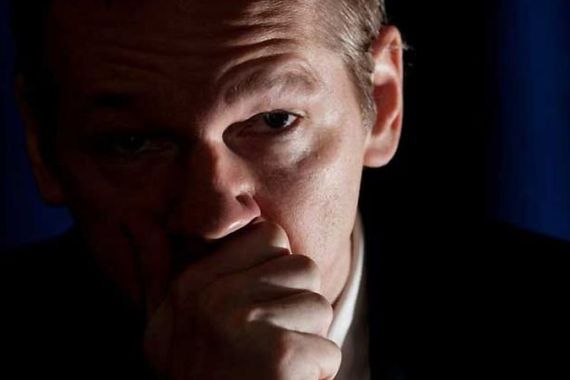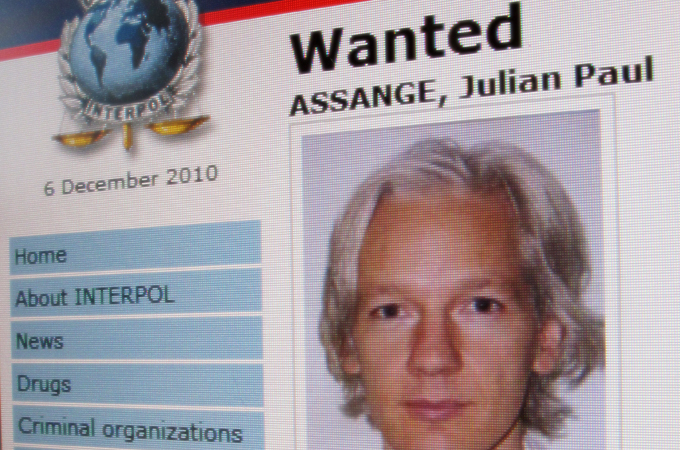WikiLeaks founder denied bail in UK
Julian Assange is remanded in custody after appearing in a London court on an extradition warrant.

 |
| Assange has angered the US by facilitating the release of hundreds of thousands of secret documents [GALLO/GETTY] |
A London court has denied bail to Julian Assange, the founder of WikiLeaks, and ordered that he remain in custody for a week, after he was arrested on an extradition warrant.
The 39-year-old Australian, who handed himself into authorities in the British capital on Tuesday, is wanted in Sweden on allegations of sex crimes.
Howard Riddle, the presiding judge at the City of Westminster Magistrate’s Court, refused bail for Assange on the grounds that there was a risk he would fail to surrender.
Gemma Lindfield, representing the Swedish authorities, had told the court Assange should not be granted bail because of his “nomadic” lifestyle, his Australian citizenship and reports that he intended to seek asylum in Switzerland.
“This is someone for whom, simply put, there is no condition, even the most stringent that would ensure he would surrender to the jurisdiction of this court,” the Press Association quoted her as saying.
Assange was ordered to appear at the court for an extradition hearing on December 14.
A number of well known personalities including Jemima Khan, film director Ken Loach and veteran journalist John Pilger all offered to stand as surety for Assange.
In a statement, police said Assange was “accused by the Swedish authorities of one count of unlawful coercion, two counts of sexual molestation and one count of rape, all alleged to have been committed in August 2010”.
Fears of manipulation
Mark Stephens, Assange’s lawyer, said outside the court that his client was likely to appeal Tuesday’s decision, saying they were entitled to take the case to a higher court.
“The British judicial system is robust enough to deal with this kind of thing and I’m sure that justice will out,” he told reporters.
Earlier he told Al Jazeera that Sweden appeared to have been manipulated by the US, which has been angered by WikiLeaks’ latest release of classified documents.
|
|
“The question is, are the Swedes being manipulated by a third party actor or is there any improper interference?” he said.
He added that the Swedish prosecutor had not told Assange what the nature of the allegations are or what the evidence against him is.
However, Marianne Ny, the Swedish director of prosecution, said that the sexual misconduct case against Assange is a personal matter and not connected with his work.
“We have nothing which indicates that this is a plot,” Ny was quoted by newspaper Aftonbladet as
saying at a news conference in the western city of Gothenburg on Tuesday.
Ny told Swedish media last week that Assange’s lawyers had been given all the information that is appropriate to share at the current stage of the investigation.
Assange is accused of rape and sexual molestation in Sweden, and the case could lead to his extradition. He has denied the accusations, which Stephens, his attorney, said stem from a “dispute over consensual but unprotected sex”.
According to media reports, Assange slept with two women during a visit to Sweden in August. One of them has been quoted by a Swedish newspaper as saying that the sex was consensual to begin with, but ended with abuse.
In an interview with Aftonbladet, one of the women dismissed claims that the allegations had been orchestrated by the Pentagon.
Jennifer Robinson, Assange’s London-based lawyer, said her client would likely resist being returned to Sweden for fear he could be turned over to the US where outrage is growing over the leak of documents.
“I think he will get a fair hearing here in Britain but I think…his prospects if he were ever to be returned to the US, which is a real threat, of a fair trial, is, in my view, nigh on impossible,” she told Australian broadcaster the ABC.
US ‘legally liable’
On Wednesday, the Australian government blamed the US, not Assange, for the unauthorised release of the documents, saying those who originally leaked the documents were legally liable.
Kevin Rudd, Australia’s foreign minister, also said the leaks raised questions over the “adequacy” of US security over the cables.
“Mr Assange is not himself responsible for the unauthorised release of 250,000 documents from the US diplomatic communications network,” Rudd told Reuters news agency.
“The Americans are responsible for that.”
Julia Gillard, Australia’s prime minister, had previously said that publishing the documents was an illegal act, without saying why, followed by calling it “grossly irresponsible”, adding that publication would not have been possible “if there had not been an illegal act undertaken” in the United States.
WikiLeaks has been under intense international scrutiny over its disclosure of a mountain of classified US cables that have embarrassed Washington and other governments.
US officials have been putting pressure on WikiLeaks and those who help it, and are investigating whether Assange can be prosecuted under American espionage laws.
The pressure on WikiLeaks has increased as the Swiss authorities closed Assange’s bank account,depriving him of a key fundraising tool.
WikiLeaks has struggled to stay online amid an increase in hacker attacks and resistance from world governments, receiving help from computer-savvy advocates who have set up hundreds of “mirrors”, or carbon-copy websites around the world.
In what Assange described as a last-ditch deterrent, WikiLeaks has warned that it has distributed a heavily encrypted version of some of its most important documents and that the information could be instantly made public if the staff were arrested.